
GRANT
 THE | GENERALS
THE | GENERALS 
GRANT
Savior of the Union
 THE | GENERALS
THE | GENERALS 
Mitchell Yockelson

2012 by Mitchell Yockelson
All rights reserved. No portion of this book may be reproduced, stored in a retrieval system, or transmitted in any form or by any meanselectronic, mechanical, photocopy, recording, scanning, or otherexcept for brief quotations in critical reviews or articles, without the prior written permission of the publisher.
Published in Nashville, Tennessee, by Thomas Nelson. Thomas Nelson is a registered trademark of Thomas Nelson, Inc.
Thomas Nelson, Inc., titles may be purchased in bulk for educational, business, fund-raising, or sales promotional use. For information, please e-mail SpecialMarkets@ThomasNelson.com.
Library of Congress Cataloging-in-Publication Data
Yockelson, Mitchell A., 1962
Grant : savior of the Union / Mitchell Yockelson.
p. cm. -- (The generals)
Includes bibliographical references and index.
ISBN-13: 978-1-59555-452-9 (hardback)
1. Grant, Ulysses S. (Ulysses Simpson), 1822-1885. 2. Generals--United States--Biography. 3. United States. Army--Biography. 4. Presidents--United States--Biography. 5. United States--History--Civil War, 1861-1865. 6. United States--Politics and government--1869-1877. I. Title.
E672.Y63 2012
973.82092--dc23
[B]
2012002738
Printed in the United States of America
12 13 14 15 16 WOR 6 5 4 3 2 1
Contents
TO CONTEMPLATE THE lives of Americas generals is to behold both the best of us as a nation and the lesser angels of human nature, to bask in genius and to be repulsed by arrogance and folly. These dichotomies that have defined the widely differing attitudes toward the man on horseback, which have alternatively shaped the eras of our national memory. We have had our seasons of hagiography, in which our commanders can do no wrong and in which they are presented to the young, in particular, as unerring examples of nobility and manhood. We have had our revisionist seasons, in which all power corruptsmilitary power in particular and in which the general is a reviled symbol of societal ills.
Fortunately, we have matured. We have left our adolescence with its gushing extremes and have come to a more temperate view. Now, we are capable as a nation of celebrating Washingtons gifts to us while admitting that he was not always a gifted tactician in the field. We can honor Pattons battlefield genius and decry the deformities of soul which diminished him. We can learn both from MacArthur at Inchon and from MacArthur at Wake Island.
We can also move beyond the mythologies of film and leaden textbook to know the vital humanity and the agonizing conflicts, to find a literary experience of war which puts the smell of boot leather and canvas in the nostrils and both the horror and the glory of battle in the heart. This will endear our nations generals to us and help us learn the lessons they have to teach. Of this we are in desperate need, for they offer lessons of manhood in an age of androgyny, of courage in an age of terror, of prescience in an age of myopia, and of self-mastery in an age of sloth. To know their story and their meaning, then, is the goal here and in the hope that we will emerge from the experience a more learned, perhaps more gallant, and, certainly, more grateful people.
Stephen Mansfield
Series Editor, The Generals
HISTORIAN KENNETH P. Williams called Ulysses S. Grant the most profitable and most inspiring of all generals to study. He was a soldiers soldier, a generals general.... He was the embodiment of the offensive spirit that leaves the enemy no rest. Grants stature seems slight when compared to the height and weight of men today, but it was average for his day. Regardless of his physical appearance, Grant towered over other army officers when it came to discipline, perseverance, and the ability to win battles.
When he accepted the surrender of the Army of Northern Virginia at Appomattox Court House on April 9, 1865, it was a momentous occasion. After four horrific years the war was effectively over, and Grant was largely responsible for the defeat of the Confederacy. On that day he was officially anointed Savior of the Union. Now, more than 150 years since the Civil War began, Ulysses S. Grant is still considered one of the greatest officers to wear the uniform of the United States Army. His rise to prominence is a story of inspiration and determination.
As a young man, Grant had no ambition to serve his country. In fact he had little interest in anything other than horses. It was Grants father who goaded his son in that direction by submitting on his behalf an application to the United States Military Academy. Grant reluctantly attended West Point, and even though he never felt entirely comfortable there, a newfound confidence came forth which saw him through that awkward time. Such confidence catapulted him to the top of the U.S. Army during the Civil War and later got him elected as a two-term president.
Countless biographies, histories, articles, and documentaries attempt to explain the rise of Grant from his humble beginnings to the general who brought the country back together in 1865. To understand Grants success on the battlefield is necessary to comprehend the man: his upbringing, his beliefs, and his drive to push on after numerous setbacks in the army and in civilian life. His personal life was far from perfect, but he never gave up, striving for perfection while displaying compassion for others. Grant: Savior of the Union focuses on his military career and why he remains revered today as a commanding general.
Grant enjoyed the excitement of war, but not necessarily serving in the army. His main passion was his wife, the former Julia Dent, and their four children. Like any soldier, he found that army life and family did not mix. After he finished serving in the Mexican War, his next assigned posts kept him far away from his loved ones. He became despondent and turned to drinking as a means of coping with the loneliness. This was all too much for Grant, and he resigned from the service.
As a civilian, Grant tried his hand at farming and business, but he had no aptitude for either. When America split apart in 1861 and war between the Northern and Southern states erupted, Grant wanted to serve his country once again as an officer. Failing to gain a commission back in the regular army, he instead accepted command of an Illinois volunteer unit. But rejoining the army meant more to Grant than becoming a soldier again. He firmly believed that the war was fought over the issue of slavery and that it had to be dealt with, even if it meant much bloodshed. A great admirer, Frederick Douglass, credited him as one of the main reasons this institution was abolished: May we not justly say, will it not be the unquestioned sentiment of history that the liberty Mr. Lincoln declared with his pen General Grant made effectual with his swordby his skill in leading the Union armies to final victory.
Next page
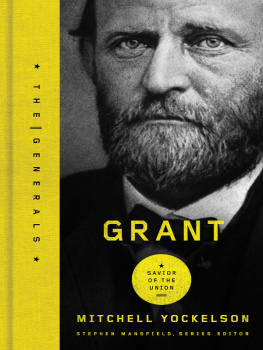
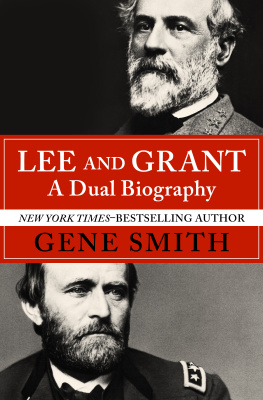

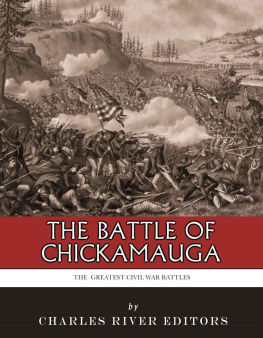
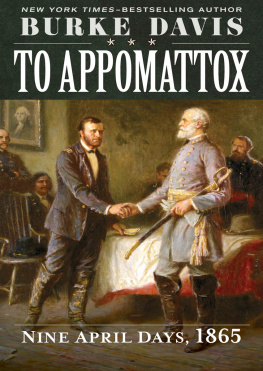


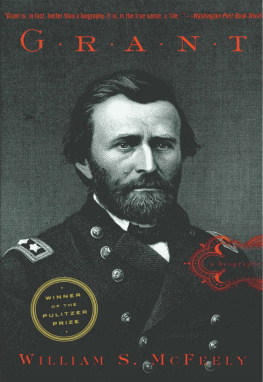
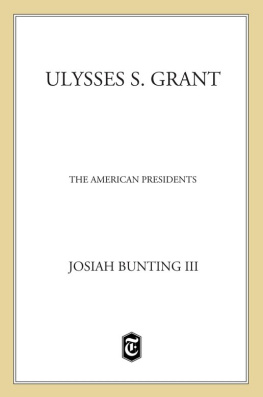
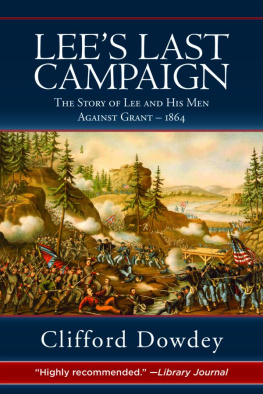

 THE | GENERALS
THE | GENERALS 